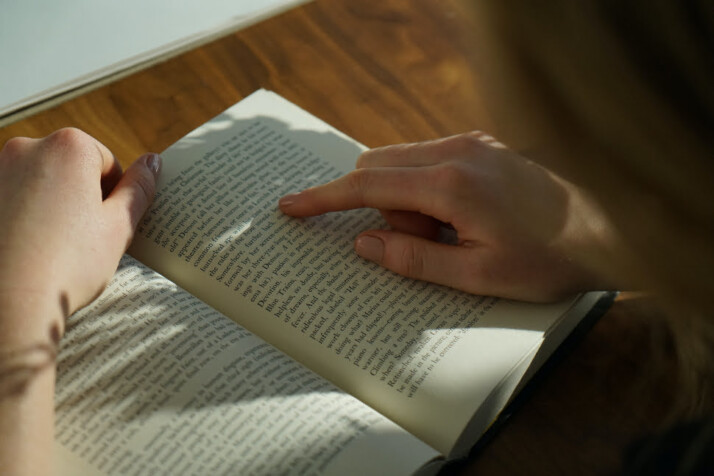Narratives are some of the most frequently used forms of writing. You might have already encountered the different types of narratives without even knowing it. But what makes a narrative text different?
Well, there are distinct characteristics of narrative text that you won’t be able to find in other writing forms.

In this article, we’ll discuss these characteristics in greater detail. We’ll also walk you through the different forms of narrative text that you can use for writing your next piece.
What is a Narrative?
A narrative is basically the art of telling a story. It involves a series of related events or actions to provide information or insight about a story. It has different characters, dialogue, and detailed descriptions of the setting.
Narratives can take on various literary forms, including poetry, short stories, and novels. It can be a real or fictional story too.
Different Forms of Narratives
- Short Story: A brief tale meant to be read from start to end in one sitting.
- Legend: A fictional story usually about a famous person or being that has been passed down from generations
- Myth: A narrative that explains the origin of something
- Novel: An extended work of fiction with a developed plot and complicated characters
- Epic poetry: A work of literature that is a narrative piece using the form of poetry
- Chronicle: A prose narrative that is a continuation of an earlier work of prose
- News: A regularly published text describing a recent event
- Reportage: Writing that is supposed to be an accurate account of an event
- Biography: A narrative about a significant person’s life
7 Main Characteristics of Narrative Text
Narratives use words purposefully to elaborate and explore the story to represent the author’s point of view. Here are the main characteristics that make up the narrative text.
1. Plot
The plot of a story can be a single, in-depth, continuous sequence of events that make up the story. It is the overall development of the story.
The plot contains the events that take the protagonist from an initial state in the story’s beginning to a final state.
2. Setting
Setting refers to the general spatial area where the story’s events take place. The setting of a story also refers to the specific period in which the story happens.
3. Characters
As with most types of writing, a narrative has characters that the story follows. There are protagonists who are your main character and antagonists who prevent your protagonist from reaching their goals.
The rest of the characters are referred to as side characters. Each character in a narrative is essential to the story. No character should be left out.
4. Conflict
The conflict of a story is the inner or outer struggle of the protagonist to fulfil their desires. It is what develops the plot of the story. The central conflict may be internal, external, or some combination of both.
5. Theme
Every story has to have a theme. The theme is the main idea that ties all the component parts of the story together. Think about other books and movies you’ve seen: what is the one thing that is consistent throughout each one? That is the theme.
Examples of common story themes are:
- Good vs. evil.
- Love.
- Redemption.
- Courage and perseverance.
- Coming of age.
- Revenge.
6. Point of View
The three most commonly used points of view are the first, second, and third points of view. A narrative has a consistent point of view, usually from the first point of view, which is the perspective of the narrator.
7. Style
The writing style of a narrative is very descriptive. It depends so much on how vividly a story is told. Narratives use words that appeal to our five senses. It makes us feel like we’re inside the story, experiencing what the characters are experiencing.
To Wrap Up
Narratives are like a piece of music that uses different instruments. All its characteristics work together to form one story that ultimately makes sense.
When composing or reading literary narrative texts, it is crucial to understand these seven characteristics. You can’t tell a good story without them!
Explore All Descriptive Text Articles
Effective Writing Tips to Describe a Person
As with any piece of writing, it’s essential to paint a picture vividly and make your reader fully grasp your…
Best Words to Describe Your Personality
There are instances when you’ll be required to describe yourself. It can be for a job interview or when introducing…
30+ Interesting Words To Describe Beauty
Beauty is the quality of being physically or visually attractive. It is the aesthetic properties of an entity, a natural…
Interesting Adjectives to Describe Movies
You might need to give a review about a movie you just watched. While you can use a few phrases…
Interesting Personality Adjectives to Describe People
What words best describe you? Funny? Determined? Hardworking? These words are adjectives. Adjectives modify one’s personality. They’re an easy and…
The Most Creative Words to Describe Smell
When depicting smell, descriptive language can help the reader have a much more vivid experience. This article explores the best…
